As an Amazon Associate, I earn from qualifying purchases
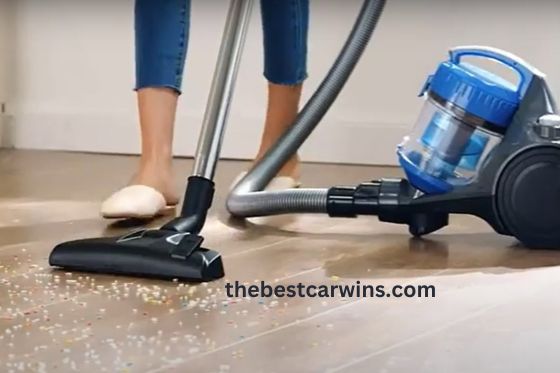
Introduction:
When it’s time to bid farewell to your old vacuum cleaner, it’s important to ensure it is disposed of properly. Simply throwing it in the trash can harm the environment and pose potential risks. In this guide, we will walk you through the steps to responsibly and safely dispose of your vacuum cleaner. By following these guidelines, you can do your part in protecting the environment and promoting sustainable waste management practices.
Check for Recycling Options: Before considering disposal, explore recycling options for your vacuum cleaner. Many components of vacuum cleaners, such as plastic, metal, and electronics, can be recycled. Check with your local recycling center, waste management authority, or electronic waste recycling facilities to see if they accept vacuum cleaners. Some manufacturers and retailers may also have take-back programs for their products.
Donation or Resale: If your vacuum cleaner is still functional and in good condition, consider donating or reselling it. Many charitable organizations, thrift stores, or online platforms provide opportunities to give away or sell used appliances. This way, you can extend the life of your vacuum cleaner and help someone in need or reduce waste by promoting reuse.
Disassemble and Separate: If recycling or donation is not an option, you can disassemble the vacuum cleaner into its different components for proper disposal. Start by unplugging the device and removing any detachable parts, such as the brush head, hose, or filters. Separate the recyclable materials like plastic, metal, and electronics from non-recyclable waste.
Proper Disposal of Components: Dispose of the different components of the vacuum cleaner responsibly:
a. Plastic parts: Plastic components can usually be recycled. Check with your local recycling facility if they accept different types of plastic. If not, dispose of the plastic parts with regular household waste.
b. Metal parts: Metals, such as aluminum or steel, are often recyclable. You can take them to a scrap metal recycling center or check with your local recycling facility for guidance.
c. Electronics: Vacuum cleaners may contain electronic components that need special handling. Electronic waste, or e-waste, should not be disposed of in regular trash. Look for local e-waste recycling programs or drop-off locations where you can safely dispose of these parts.
d. Non-recyclable waste: Dispose of any non-recyclable waste, such as fabric or rubber, in accordance with your local waste management guidelines. This may involve putting them in a designated trash bin or arranging for special disposal services.
Follow Local Regulations: It’s essential to follow your local regulations regarding the disposal of household appliances. Waste management practices can vary between regions, so check with your local authorities or waste management facility for specific guidelines and regulations.
How can I safely dispose of my vacuum cleaner?
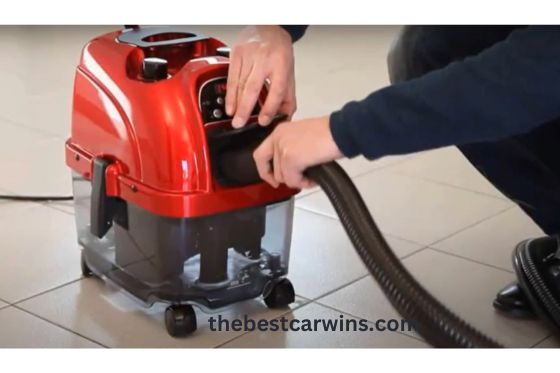
To safely dispose of your vacuum cleaner, follow these steps:
- Unplug the vacuum cleaner: Ensure that the vacuum cleaner is unplugged from the power source to avoid any electrical accidents.
- Clean the vacuum cleaner: Empty the dustbin or bag and clean any remaining debris. This step minimizes potential hazards during the disposal process.
- Check the user manual: Consult the user manual that came with your vacuum cleaner. It may provide specific instructions or recommendations for safe disposal.
- Recycling options: Research local recycling centers or waste management facilities to determine if they accept vacuum cleaners for recycling. Many components, such as plastics, metals, and electronics, can be recycled.
- Manufacturer programs: Check if the manufacturer of your vacuum cleaner has a take-back or recycling program. Some companies offer initiatives to responsibly dispose of their products.
- Donation or resale: If your vacuum cleaner is still functional and in good condition, consider donating it to a charitable organization or selling it through online platforms. This extends its lifespan and reduces waste.
- Electronic waste recycling: If your vacuum cleaner contains electronic components, dispose of them at designated e-waste recycling centers or drop-off locations. Electronics should not be discarded in regular trash bins.
- Local waste management guidelines: Adhere to your local waste management guidelines and regulations regarding the disposal of household appliances. Check with your local authorities or waste management facility for specific instructions.
Remember, safely disposing of your vacuum cleaner helps protect the environment and ensures the proper handling of potentially hazardous materials. By recycling, donating, or utilizing manufacturer programs, you can contribute to sustainable waste management practices.
What are the proper methods for disposing of a vacuum cleaner?

Proper methods for disposing of a vacuum cleaner include the following steps:
- Check for recycling options: Research local recycling centers or waste management facilities to determine if they accept vacuum cleaners for recycling. Vacuum cleaners often contain recyclable materials such as plastic, metal, and electronics.
- Manufacturer programs: Check if the manufacturer of your vacuum cleaner has a take-back or recycling program. Some companies offer initiatives to responsibly dispose of their products. For further information, you can visit their website or get in touch with their customer service.
- Donation or resale: If your vacuum cleaner is still in good working condition, consider donating it to a charitable organization or selling it through online platforms. This allows someone else to use it and reduces waste.
- Disassemble the vacuum cleaner: Before disposal, disassemble the vacuum cleaner into its different components. Start by unplugging it and removing detachable parts such as the brush head, hose, or filters. This step makes it easier to separate recyclable materials.
- Separate recyclable and non-recyclable materials: Sort the components of the vacuum cleaner into recyclable and non-recyclable categories. Recyclable materials may include plastics, metals, and electronics, while non-recyclable waste may include fabric or rubber.
- Properly dispose of recyclable materials: Take the recyclable components, such as plastic parts and metal components, to local recycling centers or designated recycling facilities. Follow the guidelines provided by these facilities for recycling specific materials.
- Dispose of non-recyclable waste: Non-recyclable components, such as fabric or rubber, should be disposed of in accordance with local waste management guidelines. This may involve placing them in designated trash bins or arranging for special disposal services.
- Follow local regulations: It is important to follow your local regulations and guidelines regarding the disposal of household appliances. Waste management practices can vary, so check with your local authorities or waste management facility for specific instructions and regulations.
By following these proper methods for disposing of a vacuum cleaner, you can contribute to sustainable waste management practices and minimize the environmental impact of your old appliance.
Where and how should I dispose of my old vacuum cleaner?
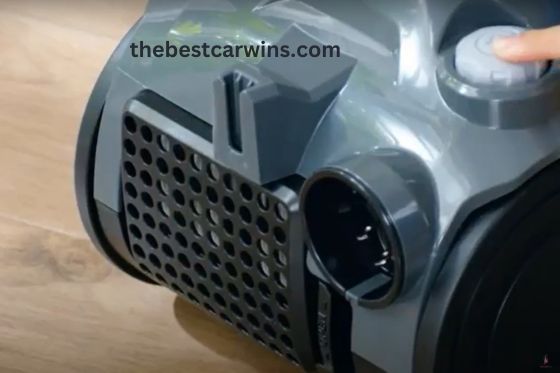
To dispose of your old vacuum cleaner, you have several options:
- Recycling Centers: Check with your local recycling centers or waste management facilities to see if they accept vacuum cleaners for recycling. They may have designated drop-off points or programs in place to handle the disposal of appliances. Recycling centers can properly handle the different components of the vacuum cleaner, such as plastics, metals, and electronics.
- Manufacturer Programs: Some vacuum cleaner manufacturers have take-back or recycling programs. Visit the manufacturer’s website or contact their customer service to inquire about their specific disposal options. They may provide instructions on how to return or recycle their products.
- E-Waste Recycling Facilities: Vacuum cleaners often contain electronic components that require special handling. Seek out specialized e-waste recycling facilities available in your area. These facilities are equipped to handle electronic waste and ensure proper disposal of the electronic components of your vacuum cleaner.
- Explore Donation Opportunities: If your vacuum cleaner is still functioning well, take the opportunity to donate it to charitable organizations, thrift stores, or local community centers.These organizations may accept used appliances and offer them to individuals or families in need. Make sure to clean the vacuum cleaner and include any accessories or attachments that are still usable.
- Resale: Another option is to sell your old vacuum cleaner through online platforms or classified ads. If the appliance is in good condition, someone else might be interested in purchasing it for their own use. This way, you extend the life of the vacuum cleaner and reduce waste.
Remember, when disposing of your old vacuum cleaner, it’s important to prioritize recycling, reuse, or proper handling to minimize environmental impact. Ensure you follow local regulations and guidelines for waste disposal and consider the most environmentally friendly option available to you.
Why is it important to dispose of vacuum cleaners correctly?
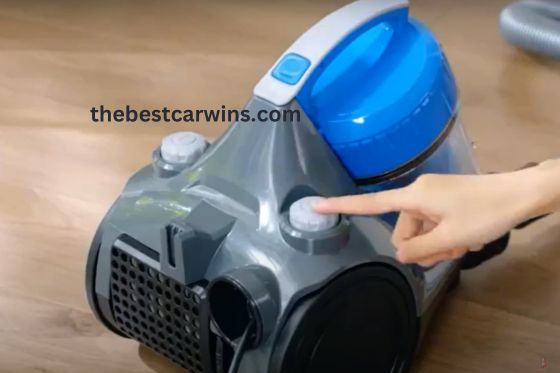
Proper disposal of vacuum cleaners is important for the following reasons:
- Environmental Protection: Vacuum cleaners contain various materials, including plastics, metals, and electronics. When not disposed of correctly, these materials can end up in landfills where they may release harmful substances into the environment. By disposing of vacuum cleaners correctly, we reduce pollution, prevent soil and water contamination, and minimize the impact on ecosystems.
- Resource Conservation: Vacuum cleaners contain valuable resources such as plastics and metals. By disposing of them correctly, these materials can be recycled and reused in the production of new products. Recycling helps conserve natural resources, reduce the need for raw materials, and decrease energy consumption associated with the extraction and manufacturing processes.
- Waste Reduction: Improper disposal of vacuum cleaners contributes to the growing problem of waste accumulation. By disposing of them correctly, we reduce the amount of waste sent to landfills, easing the burden on waste management systems and promoting sustainable waste management practices.
- Hazardous Materials: Vacuum cleaners may contain hazardous substances such as lead, mercury, or chemicals. If not disposed of correctly, these materials can pose risks to human health and the environment. Proper disposal ensures that these hazardous components are handled safely and prevent their release into the environment.
- Compliance with Regulations: Local authorities and waste management facilities often have regulations and guidelines in place for the proper disposal of household appliances, including vacuum cleaners. By disposing of vacuum cleaners correctly, you comply with these regulations and contribute to a well-regulated waste management system.
By disposing of vacuum cleaners correctly, we can minimize environmental damage, conserve resources, reduce waste, protect human health, and ensure compliance with waste management regulations. It is our responsibility to make sustainable choices and adopt proper disposal practices to contribute to a cleaner and healthier environment for current and future generations.
When should I consider disposing of my vacuum cleaner?
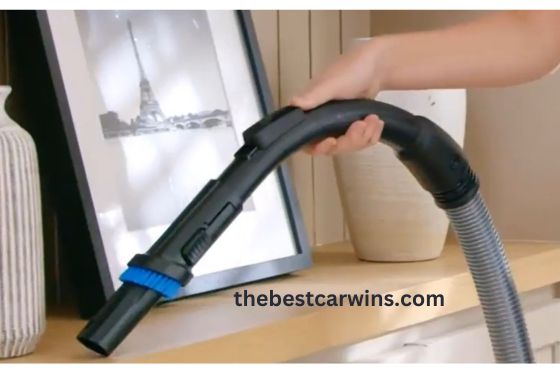
You should consider disposing of your vacuum cleaner under the following circumstances:
- Frequent Breakdowns: If your vacuum cleaner requires frequent repairs and is no longer reliable, it may be a sign that it’s time to replace it. Constant breakdowns can be costly and frustrating, and investing in a new vacuum cleaner may be a more practical option.
- Inefficiency: If your vacuum cleaner is no longer effectively cleaning your floors or has significantly lost suction power, it may be time for an upgrade. Modern vacuum cleaners often offer improved performance and advanced features that can make your cleaning tasks more efficient.
- Outdated Technology: If your vacuum cleaner lacks the latest technology, energy efficiency, or convenient functionalities available in newer models, it may be worth considering replacing it. Upgrading to a more advanced vacuum cleaner can enhance your cleaning experience and provide better results.
- Safety Concerns: If your vacuum cleaner poses safety risks, such as electrical issues, damaged cords, or excessive overheating, it’s essential to prioritize your safety and the safety of your household. Continuing to use a malfunctioning vacuum cleaner can lead to accidents or damage to your property. In such cases, it is advisable to discontinue its use and consider replacing it.
- Lifestyle Changes: Changes in your living situation, such as moving to a smaller or larger home, transitioning to a different flooring type, or acquiring pets or allergies, may require a vacuum cleaner better suited to your new needs. Assess if your current vacuum cleaner is suitable for your updated circumstances and consider upgrading if necessary.
Ultimately, the decision to dispose of your vacuum cleaner depends on its condition, performance, safety, and how well it meets your cleaning requirements. Evaluating these factors can help you determine when it’s the right time to consider replacing your vacuum cleaner.
Who can help me with the proper disposal of my vacuum cleaner?
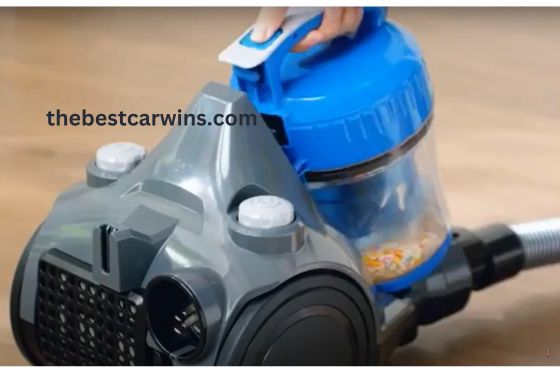
Several entities can assist you with the proper disposal of your vacuum cleaner:
- Local Recycling Centers or Waste Management Facilities: Contact your local recycling centers or waste management facilities to inquire about their policies and procedures for disposing of household appliances like vacuum cleaners. They can provide guidance on the specific methods and locations for recycling or appropriate disposal.
- Vacuum Cleaner Manufacturers: Some vacuum cleaner manufacturers have take-back or recycling programs in place for their products. Check the manufacturer’s website or contact their customer service to inquire about their disposal options and any initiatives they offer.
- E-Waste Recycling Facilities: If your vacuum cleaner contains electronic components, it is considered electronic waste (e-waste). Look for specialized e-waste recycling facilities in your area that are equipped to handle and properly dispose of electronic components. They can ensure that hazardous materials are managed safely.
- Local Charitable Organizations or Thrift Stores: If your vacuum cleaner is still in good working condition, consider donating it to local charitable organizations or thrift stores. They may accept used appliances and offer them to individuals or families in need.
- Online Platforms or Classified Ads: You can also explore online platforms or classified ads to sell or give away your vacuum cleaner to someone who might find it useful. This way, you extend its life and minimize waste.
Remember to follow the specific guidelines and regulations provided by these entities regarding the proper disposal of vacuum cleaners. They can provide the necessary resources and information to ensure that your vacuum cleaner is disposed of in an environmentally responsible and safe manner.
What steps should I follow to dispose of a vacuum cleaner safely and responsibly?
To dispose of a vacuum cleaner safely and responsibly, follow these steps:
- Clean the Vacuum Cleaner: Empty the dustbin or bag and clean any remaining debris. This step reduces potential hazards during the disposal process.
- Check for Recycling Options: Research local recycling centers, waste management facilities, or electronic waste recycling programs that accept vacuum cleaners. Ensure they can handle the specific components of your vacuum cleaner, such as plastics, metals, and electronics.
- Manufacturer Programs: Check if the manufacturer of your vacuum cleaner offers take-back or recycling programs. Visit their website or contact their customer service to inquire about their disposal options.
- Disassemble the Vacuum Cleaner: Before disposal, disassemble the vacuum cleaner into its different components. Unplug it and remove detachable parts such as the brush head, hose, or filters. This step facilitates proper sorting and disposal of the materials.
- Separate Recyclable and Non-Recyclable Materials: Sort the components of the vacuum cleaner into recyclable and non-recyclable categories. Plastics, metals, and electronics are often recyclable, while fabric, rubber, and other non-recyclable materials may need separate disposal methods.
- Proper Disposal of Recyclable Materials: Take the recyclable components, such as plastic parts and metal components, to local recycling centers or designated recycling facilities. Follow their guidelines for recycling specific materials.
- Dispose of Non-Recyclable Waste: Non-recyclable components, like fabric or rubber, should be disposed of following local waste management guidelines. Use designated trash bins or arrange for special disposal services.
- Follow Local Regulations: Adhere to your local regulations and guidelines for the disposal of household appliances, including vacuum cleaners. Contact your local authorities or waste management facility for specific instructions and regulations.
By following these steps, you can ensure that your vacuum cleaner is disposed of in a safe and responsible manner, minimizing environmental impact and promoting sustainable waste management practices.
Conclusion:
Properly disposing of your vacuum cleaner is essential for environmental sustainability. By following this step-by-step guide, including checking the manufacturer’s instructions, exploring recycling options, adhering to local waste disposal regulations, and considering donation or resale, you can ensure responsible disposal of your vacuum cleaner. Let’s contribute to a cleaner and greener future by making eco-friendly choices in every aspect of our lives.
Read More: How to Use a Air Compressor
(FAQ) Frequently Asked Questions: How to Dispose of Vacuum Cleaner
Can I throw my vacuum cleaner in the regular trash?
It’s generally not recommended to throw a vacuum cleaner in the regular trash. Vacuum cleaners often contain electronic components and materials that should be properly recycled or disposed of to minimize environmental impact.
Can I recycle my old vacuum cleaner?
Yes, many components of vacuum cleaners can be recycled. Verify with your nearby recycling center whether they accept vacuum cleaners for disposal. They will provide guidance on how to prepare the vacuum cleaner for recycling and where to drop it off.
Are there any specific regulations for disposing of vacuum cleaners?
Specific regulations for disposing of vacuum cleaners may vary depending on your location. Contact your local waste management authority or check their website to understand any guidelines or regulations for electronic waste disposal in your area.
Can I donate my old vacuum cleaner?
Yes, if your vacuum cleaner is still in good working condition, you can consider donating it to a charity, thrift store, or community organization. They may accept used appliances and find a new home for them.
Are there any other disposal options for vacuum cleaners?
In addition to recycling and donation, you can also check for specialized electronics recycling facilities in your area. These facilities have the expertise to handle electronic waste safely. Additionally, some manufacturers may have specific take-back programs or recommendations for disposing of their vacuum cleaners, so it’s worth checking with them as well.
Leave a Reply